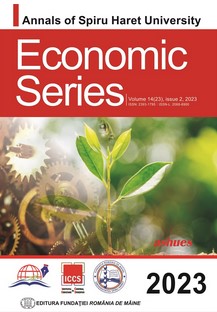CONSUMER DINING DURATION AND SPENDING: THE ROLE OF EMOTIONAL LABOUR PRACTICE IN THE RESTAURANT INDUSTRY
CONSUMER DINING DURATION AND SPENDING: THE ROLE OF EMOTIONAL LABOUR PRACTICE IN THE RESTAURANT INDUSTRY
Author(s): Samuel Sixpence, Paul Mukucha, Leonard Muzanenhamo, Wilfred Isioma UkpereSubject(s): Business Economy / Management, Socio-Economic Research
Published by: Editura Fundaţiei România de Mâine
Keywords: emotional labour; dining duration; consumer spending; restaurant;
Summary/Abstract: This paper centres on examining the link between emotional labour and dinning duration within the restaurant industry. In this study emotional labour practice was modelled as one of the crucial predictors of dining duration. This is a multiple case study methodology using a cross sectional approach. The target population was 480 dyads encounters in 6 of the most popular fast food restaurant chains in Harare. Some 214 seat-in customers were the unit of analysis while wait staff were the unit of observation. In terms of responses, 200 responses were attained and were deemed sufficient for meaningful Structural Equation Modelling. The quantitative approach employed a self-completed structured questionnaire in collecting data. A structural equation modelling was run to test the direct effects, a multi-group structural equation modelling was run to test the moderating effects of categorical variables, and a moderated multiple regression was run to test the moderation effects of the latent variables. The study revealed various factors that influence the connection between emotional labour and dinning duration such as the gender factor of the people involved, the rate and strength of the interaction between restaurant employees and the clients. The outcome directed that emotional labour is positively associated with consumer dining duration. The consumer dining duration is in turn associated with consumer expenditures within the restaurant. However, all the hypothesised moderators had no statistically significant effect. The study recommended the use of emotional labour as one of the predictors for increased revenue in the restaurant industry through increased consumer spending as mediated by the dining duration under the scenario of excess capacity and limited demand.
Journal: Annals of Spiru Haret University. Economic Series
- Issue Year: 23/2023
- Issue No: 2
- Page Range: 213-236
- Page Count: 24
- Language: English

